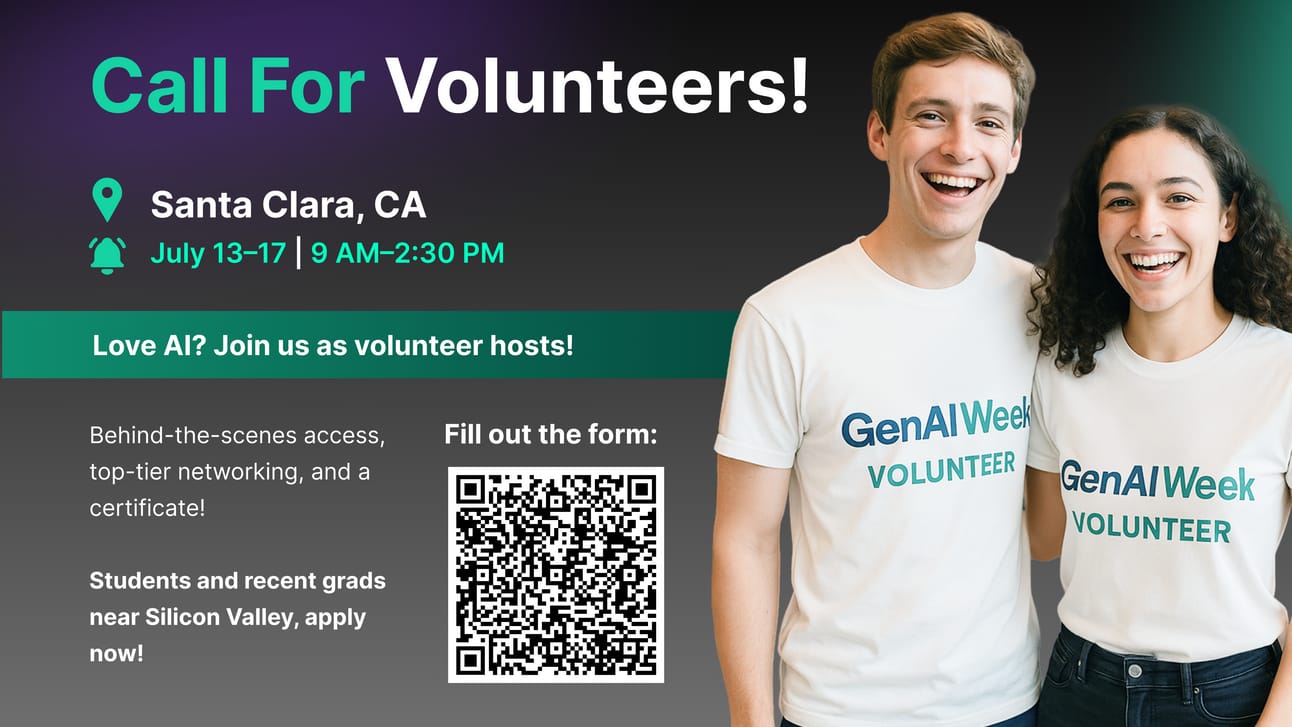
Welcome, AI Pioneers!
OpenAI's o3-Pro landed: brainier, 80% cheaper, and aimed squarely at rivals. Meta doubled down with a $15B play on Scale AI and a new lab. Wikipedia editors slammed the door on AI summaries.
In today’s Generative AI Newsletter:
OpenAI o3-Pro: Smarter, faster, and 80% cheaper
Meta x Scale AI: $15B bet to rebuild its AI stack
Wikipedia revolt: Editors block AI summary rollout
🎟️ Top 3 Must-Attend AI Events This Year — With Exclusive Discounts
Special highlight from our network
🏆 Tumeryk Wins 2025 Intellyx Digital Innovator Award
We’re thrilled to share that Tumeryk has been named a 2025 Intellyx Digital Innovator — recognized for driving enterprise-ready AI security and trust with our AI Trust Score™, Guardrails, and Risk Governance platform.
Intellyx, a leading analyst firm focused on digital transformation, highlights companies that are not just talking about innovation — but actually building it.
This award validates our mission: enabling secure, transparent, and compliant AI adoption at scale.
🎤 Want a front-row seat to the AI future?
If you’re a student or recent grad near Silicon Valley who loves AI, this one’s for you.
We’re looking for volunteer hostesses to help run an exclusive GenAI.Works event.
Here’s what you get:
✨ Behind-the-scenes access
🤝 Top-tier networking with AI leaders
📜 An official certificate (great for your resume)
Spots are limited, so don’t wait.
Not into volunteering?
🎟️ Use code GENAICOMMUNITY for 15% off
👉 Grab your tickets
💥 OpenAI Unleashes o3-Pro: Top AI, Drastically Priced

Source: OpenAI
OpenAI has launched o3-Pro, its most capable reasoning model to date delivering top-tier performance on PhD-level tasks while slashing prices by 80%, in a clear strike at Google and Anthropic’s premium offerings.
Why o3?
o3-Pro excels at longform reasoning across math, science, and programming, outperforming rivals in side-by-side benchmarks.
Independent evaluators ranked it best across all tested categories, including complex STEM domains.
It supports web search and data analysis, but lacks image generation and Canvas support, and runs slightly slower than other models.
Available now for ChatGPT Pro and Team users, with Enterprise and Edu rollout coming next week.
Ben Hylak, a top evaluator, called it “very different” from other frontier models and "much smarter" than its predecessor.
This is OpenAI’s boldest value play yet offering elite-level intelligence at a fraction of the cost. As model quality converges, pricing may become the new battleground and OpenAI just lit the fuse.
🧠 Meta Taps Scale AI CEO for New 'Superintelligence' Lab

Credit: Kenny Holston | Via Reuters
Meta is launching a new “superintelligence lab” led by Scale AI founder Alexandr Wang, part of a massive shake-up engineered by Mark Zuckerberg to reboot Meta’s frontier AI strategy including a $15B deal and aggressive talent raids from OpenAI and Google.
What’s happening:
Wang will lead the elite group, bringing top Scale AI engineers into Meta’s core AI division.
The $15B deal gives Meta a 49% stake in Scale AI, avoiding full acquisition and regulatory hurdles.
Zuckerberg personally recruited nearly 50 researchers, reportedly offering nine-figure packages to lure top talent.
This follows his discontent with Llama 4’s performance and a growing urgency to compete with GPT-4o and Claude 3.5.
Meta is betting on deep integration with Scale’s infrastructure and Wang’s leadership to push beyond current LLM limitations.
Zuckerberg is done playing defense. With Meta lagging in top-tier model quality, this is a decisive move to rewrite its AI playbook fusing Scale’s data firepower with Meta’s capital and ambition. Rival labs should be watching closely.
📚 Wikipedia Halts AI Summary Experiment After Editor Uproar

Photo by Oberon Copeland/ Unsplash
Wikipedia has paused its controversial pilot of AI-generated article summaries after fierce backlash from its own editors, who warned the tool could damage trust in the platform and degrade article quality.
What happened:
Cohere’s open-weight Aya model, appeared at the top of articles with a yellow “unverified” label, and required users to click to read.
The two-week experiment was opt-in for those using the Wikipedia browser extension, and aimed to improve accessibility.
Editors immediately protested, calling the summaries misleading, unreliable, and a threat to Wikipedia’s reputation.
Many warned that the AI blurbs lacked editorial oversight, centralized control, and risked pushing unsourced or biased information.
Wikimedia acknowledged the backlash and paused the rollout, stating no AI summary features will go live without editor moderation systems in place.
In an internet drowning in AI-generated junk, Wikipedia stands out as a rare beacon of quality and its volunteer editors are making it clear they intend to keep it that way. The Foundation may still pursue AI-assisted features, but the community has drawn a line.
🎟️ Top 3 Must-Attend AI Events This Year — With Exclusive Discounts

Our community doesn’t just read about AI — we show up where it’s made. These 3 upcoming events are where you’ll learn, build, and connect — and yes, you get insider discounts:
1️⃣ GENAI Week 2025 – Silicon Valley
🚀 Be where frontier AI happens — workshops, keynotes, demos, and product launches from the world’s most advanced AI labs.
🗓️ July 13–17 | 🌎 Silicon Valley
🎟️ Get 15% OFF with code: GENAICOMMUNITY
🔗 Grab Your Tickets
2️⃣ Raise Summit 2025 – Paris
🌍 Where AI meets capital and culture. Network with funders, founders, researchers, and regulators in one of Europe’s most iconic venues.
📍 July 8–9 | Le Carrousel du Louvre, Paris
💸 20% OFF for GenAI Community
🔗 raisesummit.com | Code: GENAICOMMUNITY
3️⃣ LeadWithAIAgents Hackathon – Global & Hybrid
👾 Build the future with AI agents. Learn orchestration, collaborate with top talent, and win up to $10,000.
🛠️ July 11–14 | Online + In-Person Hybrid
🎯 Great for builders, coders, product thinkers
🔗 Join the Hackathon
🌟 Your brand deserves the spotlight.
Reach 12M+ AI professionals who are actively building, buying, and investing in AI.

🚀 Boost your business with us—advertise where 10M+ AI leaders engage
🌟 Sign up for the first AI Hub in the world.



